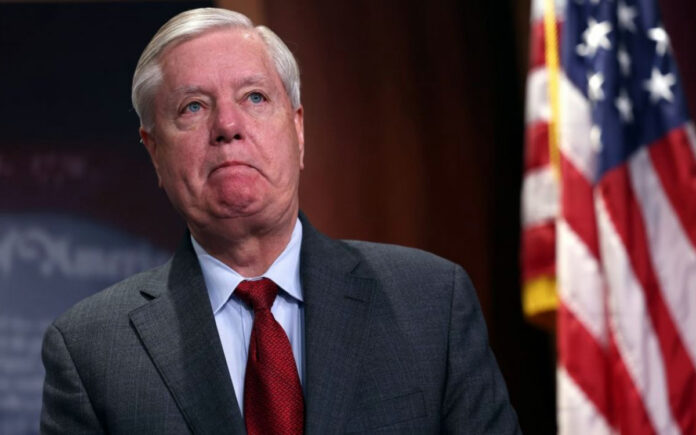Washington: U.S. Republican Senator Lindsey Graham expressed optimism regarding the potential for an agreement to normalize relations between Israel and Saudi Arabia, suggesting that such a deal could be finalized before the end of the year. Graham’s remarks came after a conversation with Israeli Prime Minister Benjamin Netanyahu on Wednesday. Currently campaigning in Michigan for Republican presidential candidate Donald Trump, Graham indicated that Netanyahu supports pursuing a deal with Saudi Arabia. He cautioned that the incoming U.S. administration may struggle to garner sufficient congressional support once President Joe Biden’s term ends on January 20.
“I think the time to do this is on Biden’s watch,” Graham stated, having previously met with Netanyahu earlier this month. He noted that Vice President Kamala Harris appears “far more beholden to the left” and has not shown a strong interest in facilitating such an agreement, whereas Biden is eager to see a deal achieved and is capable of rallying the necessary Democratic votes.
The normalization of relations between Israel and Saudi Arabia would extend the “Abraham Accords” initiated during Trump’s presidency, which previously led to agreements between Israel and the United Arab Emirates, Bahrain, Morocco, and Sudan. Morgan Finkelstein, National Security Spokeswoman for the Harris campaign, stated, “Vice President Harris has consistently supported efforts to ensure Israel is more deeply integrated in the Middle East region, including a potential historic normalization agreement with Saudi Arabia. She believes such integration is critical to counter the threats posed by Iran.”
Graham expressed concern that Democrats might be reluctant to support Trump should he win the election and the initiative be pushed into the next year. The Biden administration had previously been negotiating a normalization accord that would involve U.S. security guarantees for Saudi Arabia and other bilateral agreements with Riyadh, but these efforts stalled following the October 7 Hamas attack on Israel.
A defense pact would require a two-thirds majority in the U.S. Senate, amounting to 67 votes. Analysts suggest that achieving an Israel-Saudi normalization deal may hinge on establishing a clear pathway to an independent Palestinian state, a prospect that faces significant opposition from many Israelis.
Graham remains confident that a solution can be crafted to establish a demilitarized Palestinian state that poses no threat to Israel. “We’re moving in the right direction,” he commented, anticipating support from Saudi Arabia’s de facto ruler, Crown Prince Mohammed bin Salman, whose economic aspirations could be jeopardized by the absence of a deal.
Also Read | USDA Eases Bird Flu Testing Regulations for Dairy Cattle Amid Industry Pressure
Additionally, Graham highlighted an “opening a mile wide” for a ceasefire in Lebanon, particularly in light of Israel’s actions against Hezbollah leaders. However, he stressed that achieving lasting peace in the region will necessitate plans for rebuilding Gaza post-war and addressing the West Bank, efforts he believes should be spearheaded by Saudi Arabia and other Arab nations.
Also Read | Mother Blames AI Chatbot for Son’s Suicide in Groundbreaking Lawsuit Against Character.AI and Google
The October 7 Hamas attack on Israel resulted in approximately 1,200 fatalities and left 253 individuals taken hostage, according to Israeli sources. In response, Israel’s military actions have caused extensive destruction in Gaza, claiming over 42,500 Palestinian lives, with an additional 10,000 unconfirmed casualties believed to be buried under rubble, according to health authorities in Gaza.



